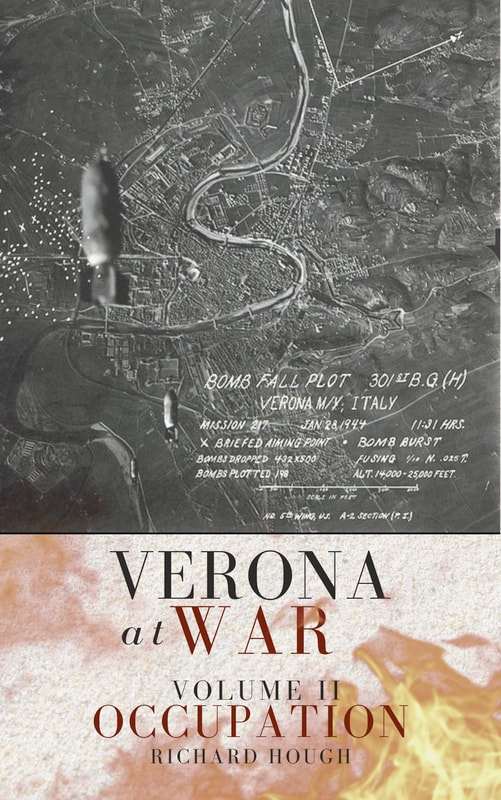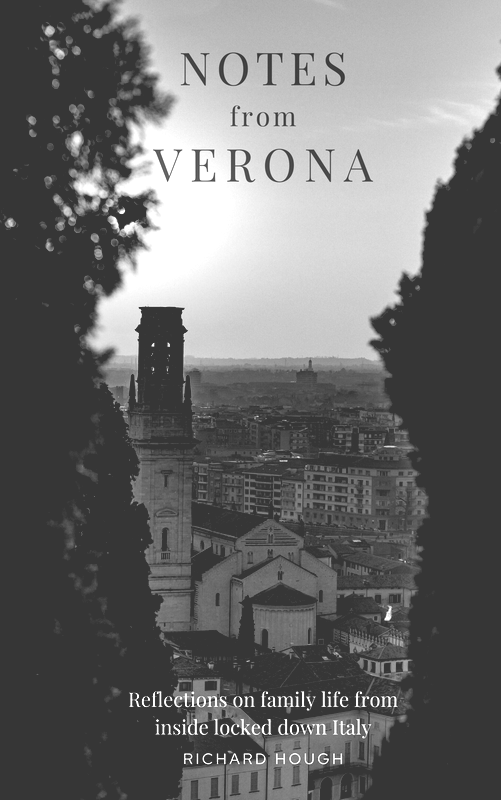|
When I first moved to Verona in September 2011, Italy was just emerging from the most severe economic recession since the Second World War. At that time, even the most optimistic economic forecasts predicted nothing more than sluggish growth for the immediate future. Exports had fallen by 25% and, despite some signs of tentative recovery, business investment was still well below pre-crash levels. In 2011 youth unemployment stood at 29% and it wouldn't reach its peak until 2014, when it hit an eye-popping 43%. Just a few months after my arrival, on 12 November 2011, amidst protests, riots, sexual scandals and the mounting debt crisis, the Berlusconi era finally came to end. Il Cavaliere was replaced by arch technocrat Mario Monti, who struggled with the task of restoring market confidence to Italy's teetering economy. Since then we've had the largely forgettable Enrico Letta, the charismatic but short-lived Matteo Renzi and finally the quietly effective Paolo Gentiloni - Italy's 5th Prime Minister in the 6 and a half years I've been here. On the pitch, Hellas Verona were finally beginning to emerge from a long period of exile in the lower divisions. In the 2011-12 season they finished 4th in Serie B and only missed out on promotion when they lost to Varese in the semi-final play-off. In the 2012-13, Verona finished 2nd, with an emerging young playmaker called Jorginho being a central protagonist for the gialloblù. The 2013-14 season was perhaps the best footballing season in my 6 and a half years in Verona. Back in Serie A for the first time in 11 years, with players like Luca Toni, Iturbe and Jorginho, the gialloblù finished in a respectable 10th place. Since then, there have been ups and downs but Hellas are currently struggling at the foot of Serie A. Notwithstanding the plight of the local football team and the looming general election in March, signs are at that the Italian economy is slowly emerging from the devastating recession that coincided with my first few years in the country. In Verona, signs of economic buoyancy have been apparent over the last 12 months or so. Shops, bars and restaurants are recruiting again and the recent arrival of a number of striking new eateries are surely a sign of expanding economic confidence. Big, bold, brash affairs, and each with a decidedly international outlook, the emergence of these new establishment are perhaps a sign of the direction in which the Italian economy is heading? Although my preference is always for the dark, dingy trattorias and bars that sell cheap, wholesome, local food, three of these new establishments have caught my eye recently. 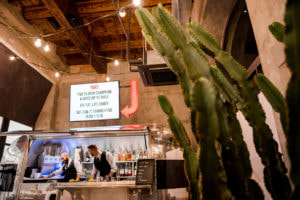
The Yard, Corso Cavour 17/a
The Yard, as the anglicized name suggests, has a real international flavour. With it's high ceilings, exposed concrete and modern art, the interior owes more to the loft restaurants of New York than to the typical Veronese trattoria. This international feel is also reflected in the menu, with American, Lebanese, oriental and French influences. 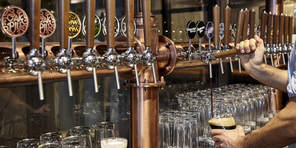
Doppio Malto, Viale del Lavoro, 50
Seeking to quench the seemingly unsatiable appetite for craft beer and 'Made in Italy', Doppio Malto is another bold new addition to Verona's eating/drinking scene. Located in the industrial quarter just outside the city centre, the beer is freshly brewed on site, the surroundings reminiscent of a New York brewery. 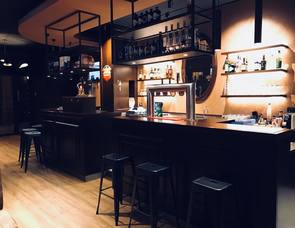
The Den, Piazzale Olimpia, 36
The Den is another newcomer to Verona's drinking scene. Located just across the road from the stadium, this is very much a sports bar in the finest English tradition. High stools along the bar, big screens and a wide range of English and craft beer. The dark wood and soft lighting give this spacious bar its den-like quality. Perfectly located for a pre-match pint. |
AboutRichard Hough writes about history, football, wine, whisky, culture + travel and is currently working on a trilogy about wartime Verona.
|

